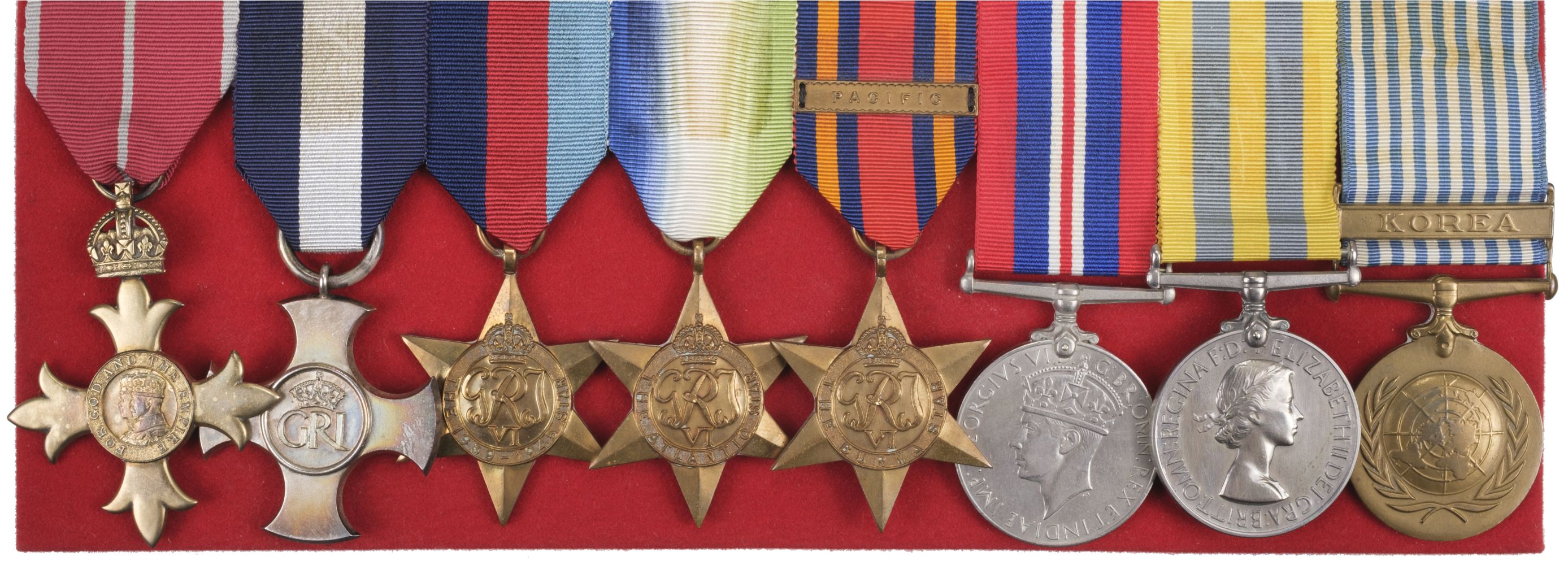A most impressive group of three awarded to Lieutenant The Hon. A. T. Fitzmaurice, 72nd Highlanders, later Groom of the Bedchamber to the Prince of Wales Crimea 1854-56, 1 clasp, Sebastopol (Lieut. A. T. Fitzmaurice, 72nd. Reg), officially impressed naming; Jubilee 1887, silver, unnamed as issued; Turkish Crimea 1855, Sardinian issue (The Honble. A. Fitzmaurice. 72nd. Highdrs.) contemporarily engraved naming, a contemporary tailor's copy, by 'J.B.', swivel-ring suspension, contact marks, nearly very fine and better (3) Alexander Temple Fitzmaurice was born on 23 January 1834, the fifth son of second son of Thomas John Hamilton Fitzmaurice, 5th Earl of Orkney, and the Hon. Charlotte Isabella Irby. He purchased his entry into the 18th Foot on 13 May 1853, before transferring to the 72nd Highlanders in 15 July 1853. By 1 December 1854 he had purchased the rank of Lieutenant, the rank which he would serve in throughout the Crimean War. In May 1855 Alexander sailed with the 72nd, first to Malta and then to the Crimea. The regiment arrived comparatively late in the siege, however there were still four months of fighting before the city surrendered. In that time the Allied forces strove to break into the city and the Russians strove equally to keep them out, rebuilding the defences even as Allied guns destroyed them. Alexander served with the regiment in the expedition to the port of Kertch which outflanked the Russian Army and helped to cut off supplies to the city. He also spent time in the trenches and certainly took part in at least one major attack, the 18 June assault on the Great Redan redoubt. This was the second assault against this redoubt, but the first attempt to seize it in earnest. It was timed to begin after a major artillery barrage and would occur across the entire line with the French advancing on Malakoff hill at the same time. Unfortunately the attack was a disaster, the Russian Engineers had rebuilt their defences after the barrage and were well entrenched. Moreover the French troops were detected as they advanced and cut to pieces by Russian fire. The British intention had been to wait until the French had established themselves on Malakoff before attacking and so advanced later towards the already altered Russian line. British troops from Yea's and Campbell's Brigades advanced and were caught in a crossfire losing over 1,000 men along with both Brigade commanders. Despite the failure of this attack the allies still believed the positions could be taken and tried again in September. The partial success of that engagement (the French capture of Malakoff) precipitated the final fall of the city after a gruelling year of fighting. The war itself ended in March 1856 and the 72nd left the Crimea for India on 30 July of that year. Alexander however did not receive a medal for the Indian Mutiny, although he remained with the regiment serving in the East Indies in August 1858, though seeing no combat. He retired from the Army by sale of commission 3 July 1860 however did join the Taplow troop of Royal Yeomanry to which he had a family connection (London Gazette May 21 1867 refers). In 1867 he became Groom of the Bedchamber for the Prince of Wales, the future Edward VII (The Times, Obituary 21 June 1894 pg 10 refers). This role was normally afforded to a small number of people who would attend the Prince while he changed or if he was dining privately. It would have afforded Alexander unsurpassed access to the Royal family as well as a place at many of the ceremonies and functions attended by that Prince. He married Adela Mary Riddle nee Scrope, the widow of Edward Riddle, on 26 April 1873. He was present for the Golden Jubilee of Queen Victoria in 1887 for which he received the Jubilee Medal He died on 19 June 1894 aged 59. The purchaser of this lot will also receive a digital copy of an extensive article published by Orders and Medals Research Society in summer 2020, written and researched by Owain Raw-Rees. This will i
A most impressive group of three awarded to Lieutenant The Hon. A. T. Fitzmaurice, 72nd Highlanders, later Groom of the Bedchamber to the Prince of Wales Crimea 1854-56, 1 clasp, Sebastopol (Lieut. A. T. Fitzmaurice, 72nd. Reg), officially impressed naming; Jubilee 1887, silver, unnamed as issued; Turkish Crimea 1855, Sardinian issue (The Honble. A. Fitzmaurice. 72nd. Highdrs.) contemporarily engraved naming, a contemporary tailor's copy, by 'J.B.', swivel-ring suspension, contact marks, nearly very fine and better (3) Alexander Temple Fitzmaurice was born on 23 January 1834, the fifth son of second son of Thomas John Hamilton Fitzmaurice, 5th Earl of Orkney, and the Hon. Charlotte Isabella Irby. He purchased his entry into the 18th Foot on 13 May 1853, before transferring to the 72nd Highlanders in 15 July 1853. By 1 December 1854 he had purchased the rank of Lieutenant, the rank which he would serve in throughout the Crimean War. In May 1855 Alexander sailed with the 72nd, first to Malta and then to the Crimea. The regiment arrived comparatively late in the siege, however there were still four months of fighting before the city surrendered. In that time the Allied forces strove to break into the city and the Russians strove equally to keep them out, rebuilding the defences even as Allied guns destroyed them. Alexander served with the regiment in the expedition to the port of Kertch which outflanked the Russian Army and helped to cut off supplies to the city. He also spent time in the trenches and certainly took part in at least one major attack, the 18 June assault on the Great Redan redoubt. This was the second assault against this redoubt, but the first attempt to seize it in earnest. It was timed to begin after a major artillery barrage and would occur across the entire line with the French advancing on Malakoff hill at the same time. Unfortunately the attack was a disaster, the Russian Engineers had rebuilt their defences after the barrage and were well entrenched. Moreover the French troops were detected as they advanced and cut to pieces by Russian fire. The British intention had been to wait until the French had established themselves on Malakoff before attacking and so advanced later towards the already altered Russian line. British troops from Yea's and Campbell's Brigades advanced and were caught in a crossfire losing over 1,000 men along with both Brigade commanders. Despite the failure of this attack the allies still believed the positions could be taken and tried again in September. The partial success of that engagement (the French capture of Malakoff) precipitated the final fall of the city after a gruelling year of fighting. The war itself ended in March 1856 and the 72nd left the Crimea for India on 30 July of that year. Alexander however did not receive a medal for the Indian Mutiny, although he remained with the regiment serving in the East Indies in August 1858, though seeing no combat. He retired from the Army by sale of commission 3 July 1860 however did join the Taplow troop of Royal Yeomanry to which he had a family connection (London Gazette May 21 1867 refers). In 1867 he became Groom of the Bedchamber for the Prince of Wales, the future Edward VII (The Times, Obituary 21 June 1894 pg 10 refers). This role was normally afforded to a small number of people who would attend the Prince while he changed or if he was dining privately. It would have afforded Alexander unsurpassed access to the Royal family as well as a place at many of the ceremonies and functions attended by that Prince. He married Adela Mary Riddle nee Scrope, the widow of Edward Riddle, on 26 April 1873. He was present for the Golden Jubilee of Queen Victoria in 1887 for which he received the Jubilee Medal He died on 19 June 1894 aged 59. The purchaser of this lot will also receive a digital copy of an extensive article published by Orders and Medals Research Society in summer 2020, written and researched by Owain Raw-Rees. This will i















Testen Sie LotSearch und seine Premium-Features 7 Tage - ohne Kosten!
Lassen Sie sich automatisch über neue Objekte in kommenden Auktionen benachrichtigen.
Suchauftrag anlegen